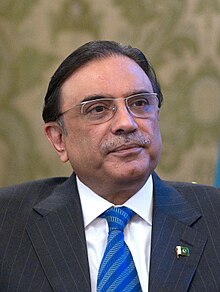ISLAMABAD, Sep 16 : President Asif Ali Zardari has called upon the nation and the Muslim Ummah to abide by the teachings of the Holy Prophet Muhammad (Peace Be Upon Him) as a guiding light to overcome the prevailing challenges.
The president, in his message on 12th Rabiul Awwal, 1446, greeted the nation on the birth anniversary of the Holy Prophet (PBUH), and said that Allah Almighty had set the Holy Prophet’s life as a role model to guide every aspect of life.
The president highlighted that the Holy Prophet (PBUH) established a just society where every individual, regardless of their wealth or social status, could live with dignity. He also emphasised the Holy Prophet’s teachings encouraged his followers to speak out against oppression and support the marginalized as an integral part of their faith.
“Today, as the world faces division and oppression, it’s imperative to spread the message of Prophet Muhammad (PBUH), who embodied love, tolerance, and human rights. He treated all individuals, regardless of their faith, with respect and dignity. Embracing this spirit, we must promote global brotherhood, justice, and love,” President Zardari remarked.
President Zardari said that the Holy Prophet (PBUH) would continue to be a source of guidance forever. 12th Rabiul Awwal serves as a reminder of a transformative message that turned the darkness into a beacon of light.
He emphasized that the Holy Prophet (PBUH) considered those who benefited others as the best of humanity.
“So on this auspicious occasion, we need to disseminate the Holy Prophet (PBUH)’s message of love and compassion to humanity. His life exemplifies service to humanity, from caring for orphans and supporting the poor to inquiring after the sick,” he remarked.
The president urged the countrymen to dedicate the day to the welfare of humanity and incorporate the teachings of the Holy Prophet (PBUH) into our daily lives. He also prayed to Allah Almighty for Pakistan’s peace and prosperity and sought strength to adhere to the teachings of the Holy Prophet (PBUH).



Comments are closed.